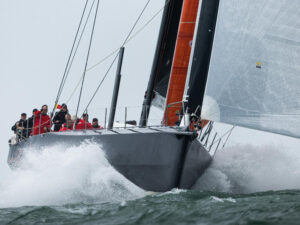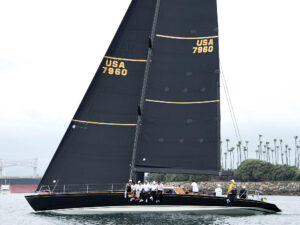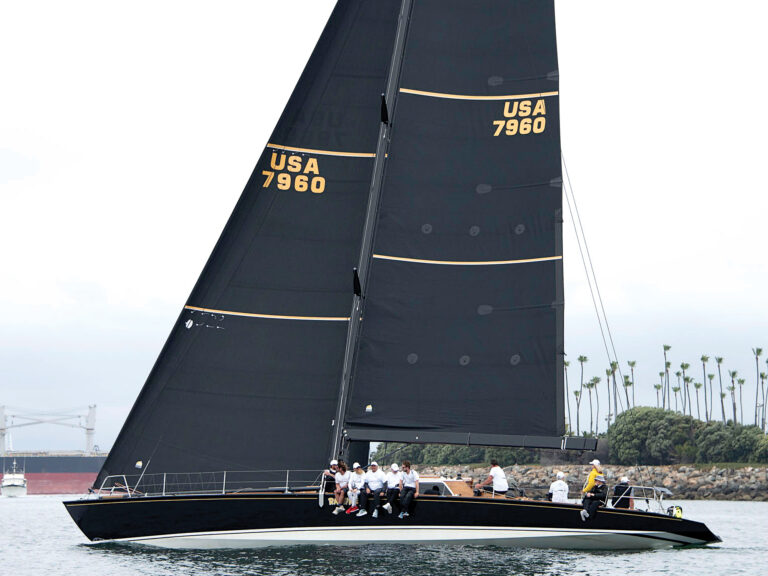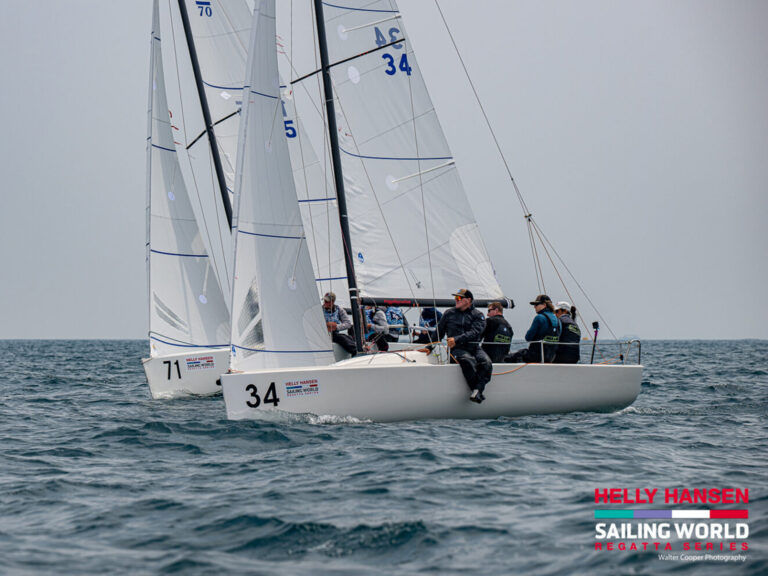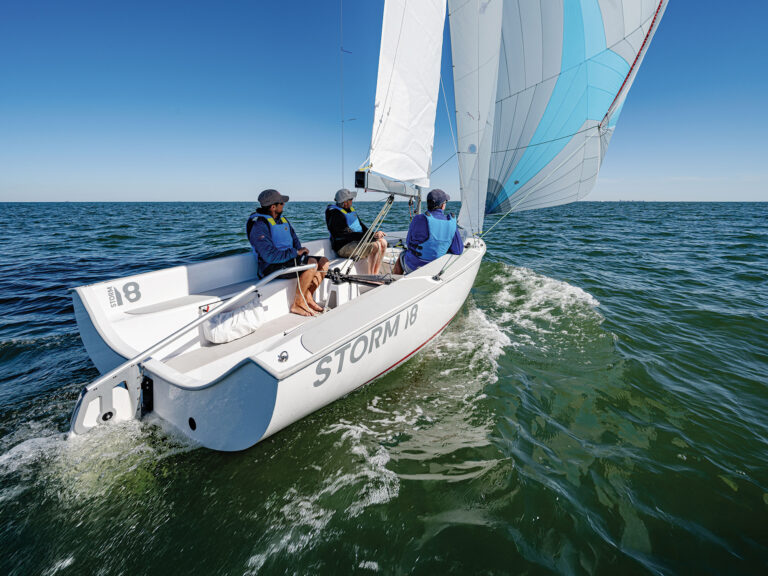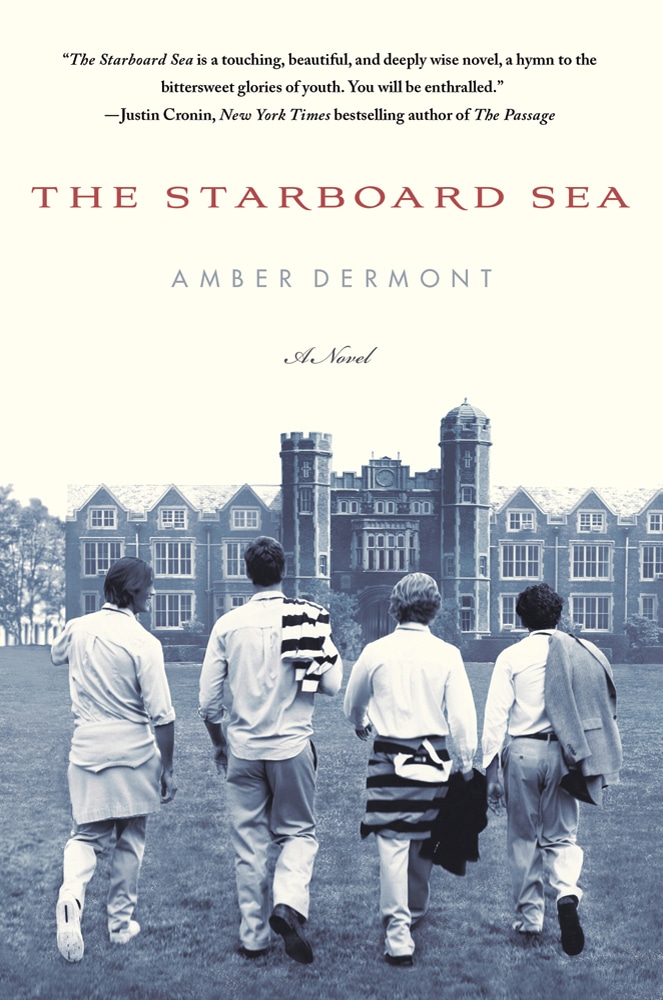
121108_StarboardSea
Among the more popular themes in contemporary literary fiction, dinghy racing has been largely excluded. But in her debut novel—one that last March commanded the front page of the New York Times Book Review—Amber Dermont examines the culture of competitive sailing through the eyes of Jason Prosper, a talented prep school dinghy crew whose world is upended when Cal, his best friend and sailing partner, commits suicide. Devastated, Prosper transfers to a “third rate” boarding school on the coast of Massachusetts, where he is eagerly recruited for the sailing team. But on his first day of practice, Prosper, distracted by Cal’s absence, nearly kills one of his new teammates when he capsizes their boat. Blackballed as a result, Prosper meets and falls in love with the enigmatic loaner, Aiden, with whom he shares his deepest secrets. But when a hurricane slams the coast and Aiden drowns in the harbor, Prosper grows suspicious of school administrators who attribute her death to suicide. Using his skills to gain the trust of the sailing team and to reveal the truth, Prosper confronts the recklessness of his privileged peers while he himself seeks what his friend Cal called the “starboard sea,” or “the right sea, the true sea, or … the best path in life.” (p. 274)
In its ability to weave sailing into a coming-of-age story, The Starboard Sea is a success. For Dermont, the ocean is at once mutable and uncontrolled, a space that can at times be subdued by specialized knowledge, but more often gives way to confusion. And in this sense, Dermont’s sea becomes a metaphor for adolescence. Yet, for all the vibrant descriptions of boarding school life, her sailing scenes often seem mechanical, as if they had been written to pack each page with as many salty terms as possible. And in some cases, a lack of accuracy leads to confusion. For instance, in a description of light-wind dinghy racing the protagonist explains, “When the winds were fluky, we knew when to ease the sails and douse the jib.” (p. 266) Why one would douse a jib in a shifting breeze is not explained. Elsewhere, Prosper explains that his was “one of the rare teams to play the squalls, using the rough winds to make a charge for victory.” (p. 61) Again, this description seems more appropriate to offshore racing than any high school dinghy regatta. These few fumbled details, however, are far outweighed by Dermont’s gift for character development and pacing. And it is evident that she has thought deeply about the relationship between racing sailors and the sea. Ultimately, The Starboard Sea is an entertaining read, one that warrants a place on the dinghy sailor’s bookshelf.
Amber Dermont, The Starboard Sea, St. Martin’s Press, $24.99
The author is a former associate editor at _Sailing World. He is currently a Fellow at the Rachel Carson Center for Environment and Society of Ludwig-Maximilians University in Munich, Germany. He has a PhD in American History from the University of New Hampshire._


